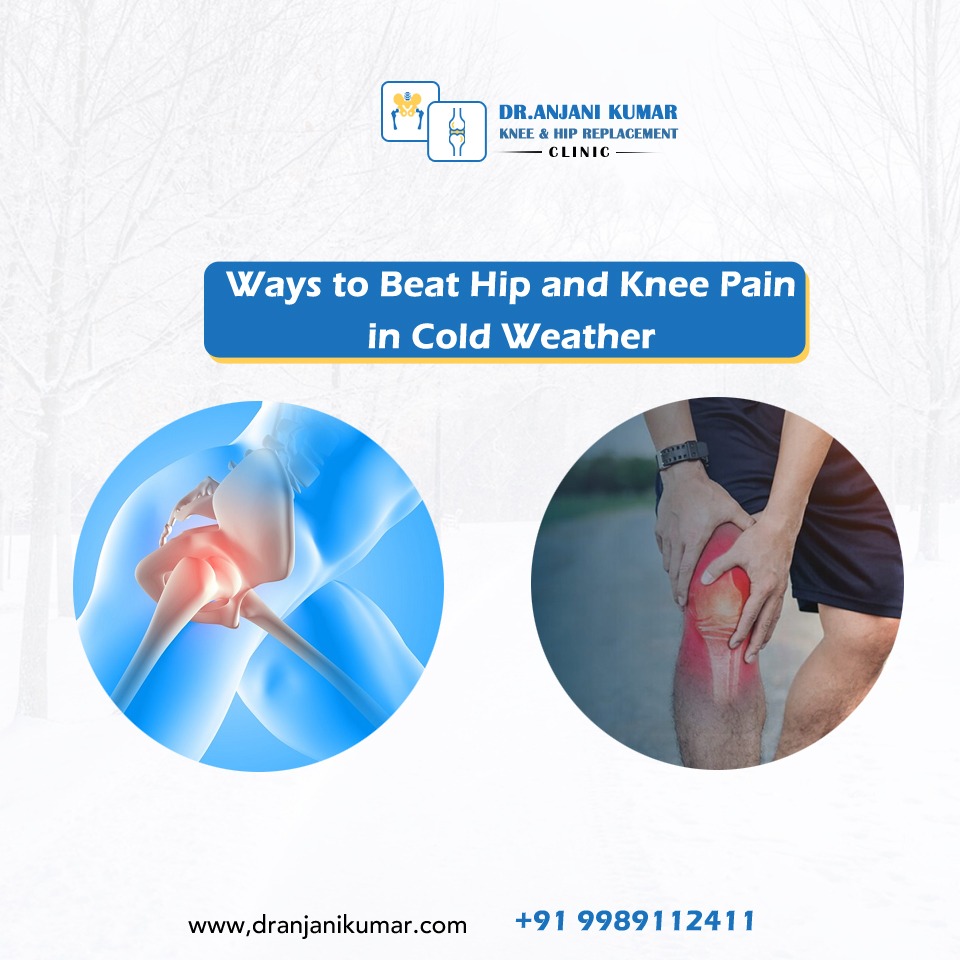Most people prefer to go on vacations during winter instead of summer. But people suff3ering from joint diseases such as arthritis suffer, but with a few prescribed precautions, they too can enjoy winter. All seasons bring some or the other seasonal diseases. For instance, people suffer sunstroke during summers and in monsoons, they suffer from viral fevers, flu, etc. After summer, the temperatures start dropping. As a result, the cold temperature concentrates the blood flow in the body. It impacts increased blood pressure and also strains the heart. Our body uses stored energy to withstand cold when exposed to a cold climate.
Why is winter harsh on hip and knee joints?
The human joints have a fluid called Synovial fluid as a shock absorber. It has the consistency of an egg white and aids in smooth joint movement. During the winter, this fluid thickens, causing joint pains. Arthritis patients are the sufferers.
Precautions to be taken to overcome hip and knee pain during winter
“Prevention is better than suffering”. It is a well-known fact that people generally suffer from joint pains during cold climates, so few standard precautions should be followed to control the pain.
- Walking:
During the winter, one should activate the immune system, as this boosts the ability to fight infections. Walking in winter increases the body temperature, hence the joint fluid does not thicken.
- Regular exercises:
Regular exercise helps keep the joints flexible, improves blood flow, and prevents injuries. Practices such as stationary cycling, Yoga, and stretching exercises are recommended.
- Balanced nutritional diet:
Eating balanced meals is good in all seasons, but maintaining a balanced diet is essential. For instance, consume:
- Garlic & Ginger: Both are root vegetables and a good source of anti-inflammatory compounds that help to relieve pain.
- Nuts & Seeds: Including nuts and seeds in a daily diet reduces inflammation and connective tissue issues. For instance, walnut, almonds, flax, and chia seeds are good sources.
- Fruits & Berries: Apples, cranberries, and apricots are good antioxidants and help suppress joint pain and inflammation.
- Dairy Products: Skimmed milk, cheese, and yoghurt are rich in calcium and help to increase bone strength.
- Green leafy vegetables: Green veggies are very excellent sources of vitamins, minerals, iron, and excellent antioxidants. These decrease the inflammation associated with rheumatoid arthritis.
- Bone broth: Bone broth is rich in glucosamine and amino acids, which maintain bone growth and relieve joint pain.
- Stay hydrated: Staying hydrated during winter plays a crucial role in preventing muscle cramps. During winter, the body becomes sensitive to joint pains, and drinking water timely checks the immune system. Water, hot chicken soup, bone broth, and vegetable soups keep you hydrated.
- Wearing warm clothing: Warm clothes warm up the tired muscles, and the blood vessels get more prominent, which allows more blood flow, oxygen, and nutrients necessary for the injured tissues. Proper blood flow relaxes the stiff muscles and joints. Heat pads, hot showers, or hot packs are also used to relieve pain and stiffness.
- Staying indoors: Staying indoors plays a crucial role in controlling joint pains as we maintain a cosy temperature indoors, as a result, can gain the strength to withstand joint pain and stiffness.
- Supplements: Our skin can produce vitamin D when exposed to natural sunlight. During the winter months, when days are shorter, and temperatures tend to be lower, there may be fewer opportunities for outdoor activities. Vitamin C, iron, vitamin E, and vitamin B supplements should be taken.
Especially during icy climates, people with arthritis need to take special precautions from further damage to their joints with the guidance of their doctors.
FAQ’s
1) What precautions should I take for joint pains during the winter season?
By following a few extra precautions during winter, one can withstand the pain:
- Application of heating pads.
- Stretching exercises.
- Taking steam baths.
2) Does taking vitamin supplements help to control joint pains?
Vitamin D supports the management of autoimmune conditions which affect the joints. Other supplements, such as vitamins C, A, and E play a crucial role in joint pain control.
3) How B12 reduces joint pain?
B12 vitamin stimulates the joint nerves and reduces pain even from old injuries. The suggested portion for grown-ups is 2.4 micrograms.
4) What precautions should I take before the winter season starts?
As arthritis patients know about their pain, it’s a great option to take precautions before the winter begins. Routine medication with few prescribed arthritis exercises by the doctors, followed by heat and cold therapies.
Dr Anjani Kumar has 20 years of experience and successfully performed 2000 knee replacement surgeries, 350 hip replacement surgeries, and 500 pelvic acetabular surgeries throughout his career. Please contact us on Mobile: +91 9989112411 and
E-mail: anjanikumar@ gmail.com to know more and to avail of our services.




